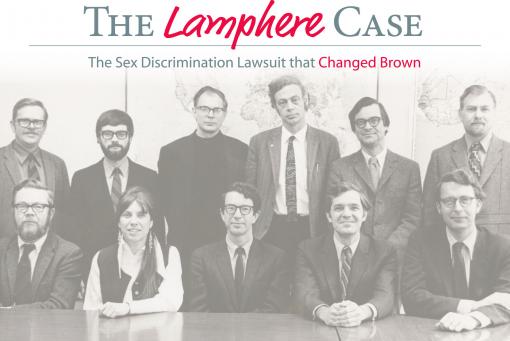The Friends of the Pembroke Center support the center in many ways, including developing online research tools for the study of women's history at Brown. Tools and publications brought to life by the Friends include the digital archives of the Pembroke Record, the newspaper published by Pembroke College students; publications by former Pembroke Center directors Joan Wallach Scott and Elizabeth Weed; and archival exhibits displayed in Pembroke Hall.
Pembroke Center
Documenting the History of Women at Brown
The Friends of the Pembroke Center play an active role in preserving and celebrating the history of Brown women by sponsoring publications and research tools.
Documenting the History of Women at Brown
The Friends of the Pembroke Center play an active role in preserving and celebrating the history of Brown women by sponsoring publications and research tools.
